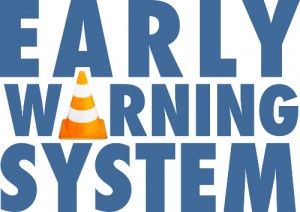Towards the end of last year, the Child Poverty Action Group developed an innovative ‘Early Warning System’ to support its work in investigating the child poverty implications of UK Government welfare policy changes. In this article, Hanna McCulloch explains the thinking behind the approach and identifies three general themes from its initial outcomes.
Drawing out front-line experience
The Child Poverty Action Group (CPAG) established the Early Warning System late in 2013 to gather emerging evidence from the hundreds of frontline workers across Scotland that we support with our welfare rights expertise.
With so much background noise on welfare reform, we saw the system as a way to ensure that the voices of families and the frontline workers are heard loud and clear. Above all, we want those voices to inform practical change, not only to UK social security policy, but also to the practice of Scottish institutions – including the NHS, local authorities, and national government – all of whom have a role in supporting families and protecting children.

The Early Warning System was initiated in late 2013
While Scottish institutions can’t be blamed for welfare changes, they – indeed, all of us – surely have an obligation to do everything in our power to protect children from their effects. This isn’t just a moral duty; it’s also a practical imperative. If nothing is done, the dream of Scotland as the best place to grow up, full of thriving, equally well children, will remain just that.
The Early Warning System gathers case studies and information from three main sources. 85 frontline advisors from across the country use our online form to tell us about cases they come across. The system also analyses calls to CPAG’s second tier advice line drawing out information about what is happening on the ground. In addition, we are engaged in two pieces of qualitative research in which we interview low income families to record their experiences of welfare reform.
As well as specific findings in relation to sanctions and benefit delays, three general themes have emerged again and again:
There is no room for error
More than half of the cases we’ve come across relate in some way to misinformation or maladministration, suggesting it’s not just the new rules that are problematic but the way they’re being applied.
These cases often involve staff giving claimants the wrong information about their rights and entitlements or failing to record accurate information – often with catastrophic results. While many of these cases relate to the practices of the Department for Work & Pensions and jobcentre plus, Scottish services are by no means exempt. We have come across several cases where local authorities have immediately stopped housing benefit payments because someone in a household has been sanctioned in relation to their Jobseeker’s Allowance claim.
This is not only bad practice: it has a ripple effect that can result in rent arrears, court action and even homelessness. Investing in good training and guidance to begin with would spare families – and local authorities – a lot of stress and expense.

It’s everyone’s business
The cases we’ve received highlight just how many Scottish services can be affected by one single case. One mother saw her family income drop to £60 a weeks for three months as a result of a delay to her Disability Living Allowance claim. She lost two stone in weight and was increasingly ill with Crohn’s disease.
She was referred to a food bank by her local authority, but couldn’t afford to get there to pick up the food. When she did get there, the processed foods aggravated her condition. She said, “I think that’s why I’ve been so ill, having to eat processed food…. And I’m on antidepressants as well again because I couldn’t cope…In the end I think that’s why I qualified for the higher rate.”
This one delay had an impact on a local food bank, the local authority and the GP. As well as those services directly impacted by this case, there were others services that could have played a role. Could transport policy be more reactive to the needs of those with reduced income? Would the availability of advice or counselling service have lessened the impact on this family? Cases like this highlight the need for all arms of the Scottish and local government to consider welfare reform when planning services and allocating budgets.

CPAG in Scotland’s activities include policy campaigning and the provision of training & advice.
Children are paying the price
The Scottish Government’s indicators dictate that a child with a high level of wellbeing will be Safe, Healthy, Achieving, Nurtured, Active, Respected, Responsible and Included. Many cases highlight clearly how poverty and welfare reform can undermine almost every aspect of wellbeing.
One interviewee’s 11 year old son, for instance, became withdrawn and displayed other signs of distress such as pretending he had diarrhoea so he didn’t have to go to school. He repeatedly made himself sick before lunch so he could go home. This behaviour went on for several months before it eventually transpired that he was getting bullied for being poor and because couldn’t afford to go to the shop at lunch time.
Cases like this highlight that there is still a need to make noise about welfare reform, but there is also a need to take every possible action within our power to ensure that children in Scotland are safe, happy and well.
For more information about the Child Poverty Action Group’s Early Warning System, visit: http://www.cpag.org.uk/scotland/early-warning-system